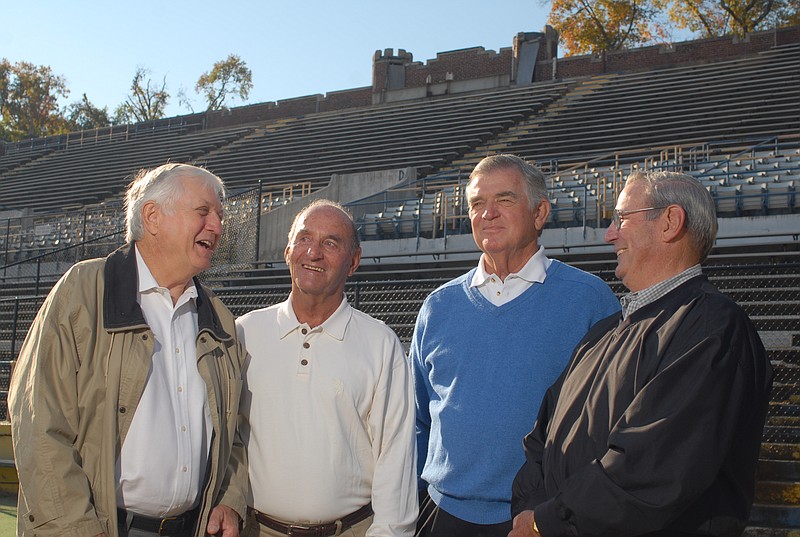Other than my father, few men shaped my childhood more than Harold Wilkes. With the passing of Coach Wilkes two days before Christmas, I'm faced with the reality that both of my guiding forces are no longer here.
I was raised in East Brainerd in the early 1970s, when few people ventured down the pig-trail called Gunbarrel Road and life looked as if it were lifted from a Norman Rockwell painting. We rode our bikes forever, built forts in the woods and used our imagination to come up with countless games in the streets. And the epicenter of all of this activity was the Wilkes home.
It was the gathering place where we always felt welcomed by Coach and his wife, Nancy, along with their daughters Paula and Jerri.
Coach Wilkes and I formed a special bond, although his girls were still better at fishing and other boyhood skills I never quite mastered. I can't count the number of his prized lures I lost up in the trees whenever he took me to Harrison Bay, and he would remind me that we weren't fishing for squirrels.
This was during the time when he was in charge of the University of Tennessee at Chattanooga football program, being promoted when his mentor, Hall of Fame coach Scrappy Moore, retired in 1967.
Coach Wilkes was a member of the 1958 Chattanooga team that went to Knoxville and beat the Volunteers, and a riot ensued on the field afterward as Mocs fans tore down the goal posts. He had a section of that cast-iron upright mounted on his basement wall, and he loved to brag about that win.
The grown-ups would spend summer evenings talking on the Wilkes' back patio while the kids played outside. One particular evening Coach Wilkes had endured enough of a neighbor's yapping dog, so he removed his golf-ball-sized wad of Red Man and fired it in the direction of the perpetrator.
Unfortunately, the game of tag we were playing brought me around the corner of the house at the wrong time. I caught the plug of tobacco squarely in the eye, knocking me onto my back. Well, Coach Wilkes wasn't sure if he had killed me or blinded me, but he scooped me up in his massive arms and carried me to the garden hose to rinse out my eye.
After five years as football coach, he continued to serve as athletic director until his retirement in 1989.
His AD role sparked a memorable moment during my college years. One of the basketball Mocs' heated foes was Western Carolina, and a game in Cullowhee was suddenly called off under the guise that snow was predicted for the North Carolina mountains. Coincidentally, the Catamounts' best player had an eye injury and was unable to play. When the game was rescheduled, he was at full strength and UTC suffered its lone conference loss.
When WCU came to Chattanooga a few weeks later, I asked Coach Wilkes' permission to provide a special welcome from the Section G crazies who sat behind the visitors' bench in Maclellan Gym. I assembled dozens of small bags of snow-like confetti and passed them out. During the player introductions, the stunned Catamounts were covered in our own version of "snow" that set the tone for a decisive Mocs win.
Coach Wilkes warned me that if trouble ensued, he would deny any knowledge of the plan, but I can still see him sitting with his hand in front of his face at the officials' table, trying to conceal his glee.
I moved to Alabama for three decades and saw him only a few times during those years. I was able to visit with him a few times upon returning to Chattanooga last year, the effects of his auto accident and resulting physical setbacks robbing him of some of his strength but never his wit or kindness. Although he was in his 80s, Coach Wilkes still represented a pillar of strength and was a reminder of a simpler time in my life.
Coach Wilkes was what a man was supposed to look like in my impressionable mind. His lessons were taught with few words, but they still resonate today. I am among the thousands of people whose life he enriched.
Thank you, Coach.
